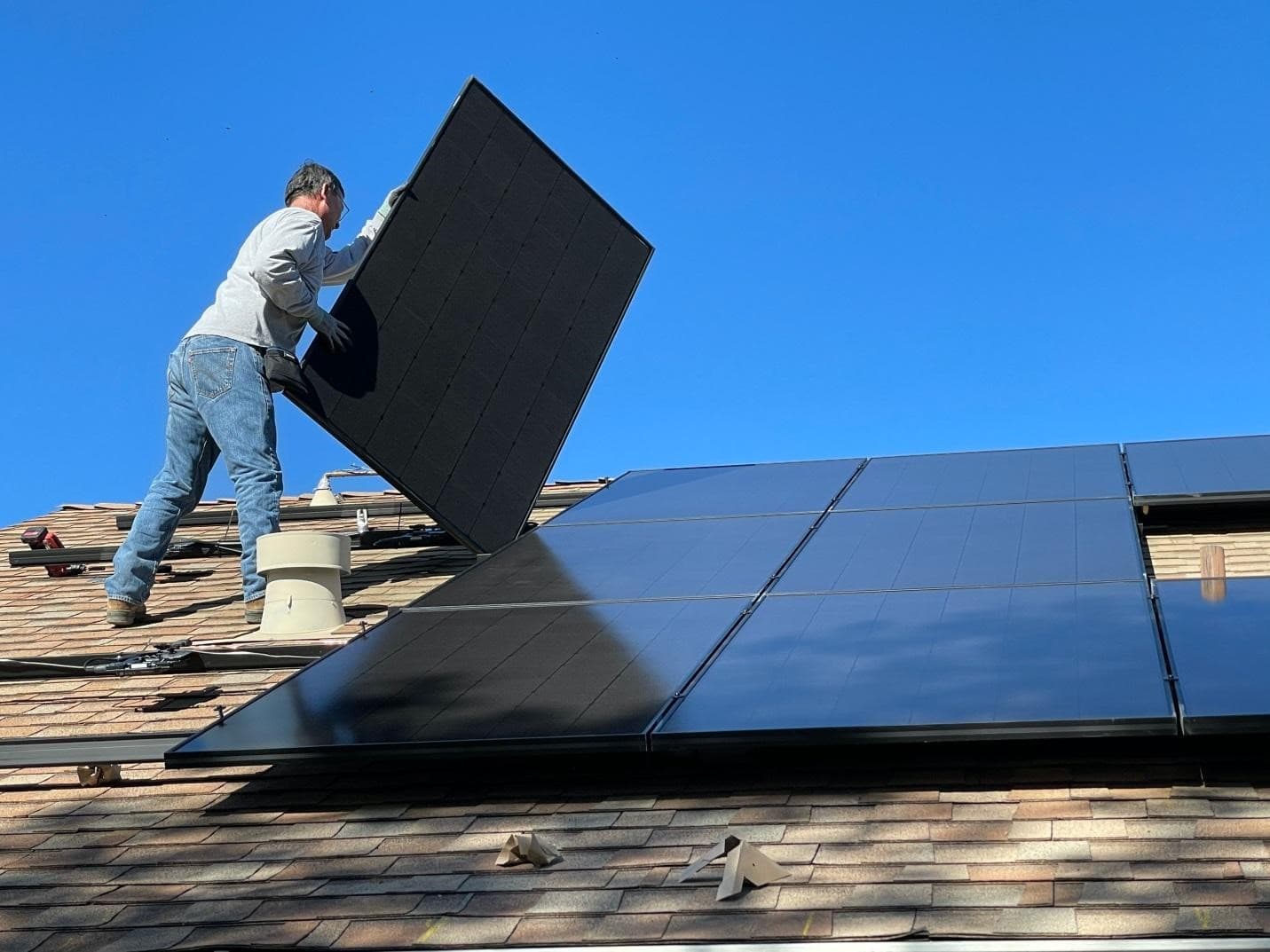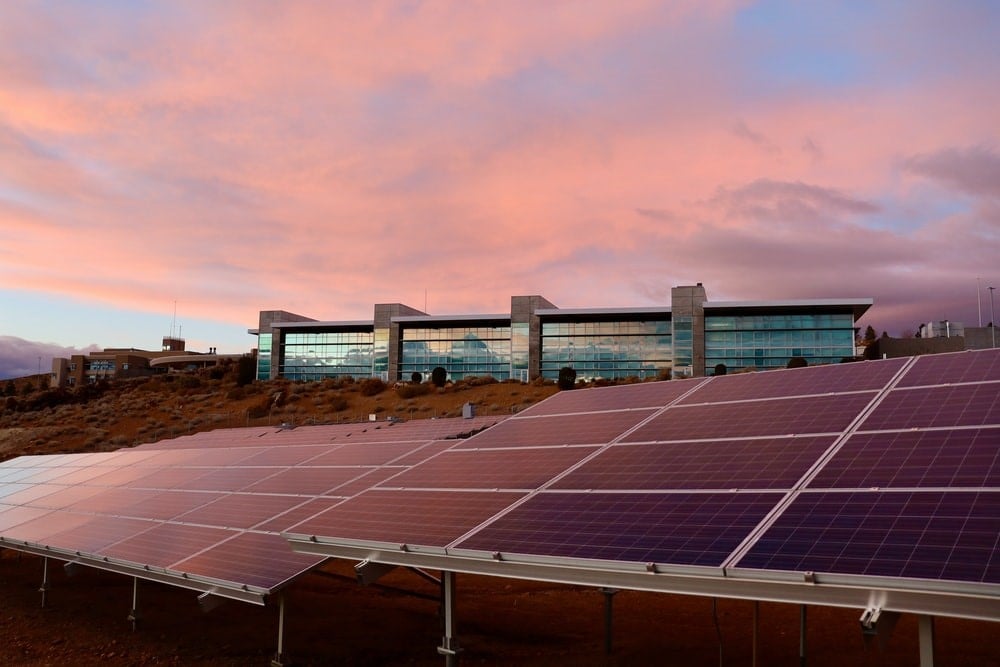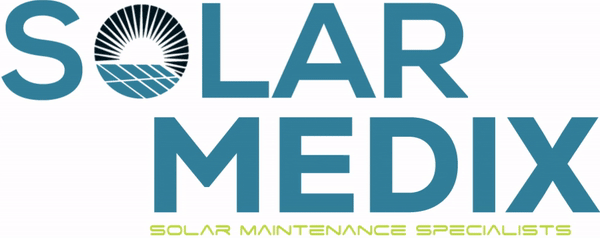If you have purchased a residential building with solar panels installed on its rooftop, then it is your responsibility to clean the solar panel system for it to work properly. You can do this job yourself by following some steps. However, if you find any difficulty cleaning your solar panels, you can hire a commercial cleaning service provider to get this job done professionally.
Consequences of Not Cleaning Solar Panels Frequently
Most solar panels are installed at a fixed tilted angle and cannot be adjusted once they are mounted. This means that solar panels can get dirtier as the seasons change. In some cases, it may be necessary to clean the solar panels more often than in others. Without regular cleanings, solar panels will eventually stop working correctly.
Cleaning your solar panels might seem like a hassle, but it is an integral part of maintenance and operation. While it does not take much time or effort, regular cleaning can help you avoid more significant issues, such as:
1. Reduced Panel Efficiency
When dirt and dust build up on your solar panels, they will produce less power. As a result, you will pay more for electricity each month because you get less energy from the sun. Fortunately, this is easily fixed by cleaning your panels regularly.
2. Harmful Chemicals
When algae grow on your solar panels, it can erode them over time and cause leaks in the system. Cleaning your panels regularly will prevent algae from growing on them and causing damage.
3. Lost money
Since dirty solar panels do not work as well as clean ones, you are missing out on free energy from the sun if they are not clean. Regular cleanings help ensure that they continue to produce energy at optimal levels so that you get the most out of your solar energy system.
How Long Does It Take To Clean A Solar Panel?
The time it takes to clean a solar panel varies greatly depending on the size of the system, the number of panels, and their position. For example, if you have a small south-facing home system with only one panel, cleaning it could take a matter of minutes, but if you have a large array of panels on your roof, then cleaning them will take much longer.
The time it takes to clean a solar panel depends on the method you use. For example, if you use an automated solar panel cleaner, like the solar panel cleaning robot, it will clean your solar panel much quicker than if you clean it manually with a standard garden hose. If your solar system is installed on your roof, you should make sure that you follow manufacturer instructions when cleaning your panels, as not doing so could invalidate your warranty.
The Right Time to Clean Your Solar Panels
It is important to note that cleaning your panels can be time-consuming and labor-intensive, so it is crucial to know what time of year is best for cleaning them. If you plan to clean your solar panels yourself, you will want to do it when the weather is nice, such as in the spring or fall. Springtime is perfect because there are no leaves on the trees yet, and there is less pollen in the air than there would be in the summertime.
However, if you have noticed a drop in power production, it may be the right time to clean your solar panels. The right time of the day to clean your panels is in the early morning or early evening when the sun is not too hot. Do not clean your solar panels during the middle of the day. If you do, the water will dry on them before you can wipe them down, leaving behind spots and smears that reduce their efficiency.
Steps to Clean Solar Panels
Below are some steps on how to clean solar panels on the roof:
1. Turn off the Power
Before cleaning the panels, you will need to switch off the power from the main switchboard in your home. Many people ask the question, “do I need to turn off solar panels to clean?” If you do not disconnect the solar system, there is a risk of damage or electric shock when cleaning.
2. Put on Safety Gear
When cleaning your solar panels, make sure to wear the proper safety gear to protect yourself and those around you. Put on some sunglasses and avoid looking directly at the sun as it can damage your eyes. Next, put on a good pair of work gloves to protect your hands from any dirt or debris that may be on the panel. Finally, wear a rubber-soled pair of shoes to protect you from electrical shock if the solar panel still carries electricity.
3. Use a Soft Brush
Use a soft brush to remove any loose dirt or debris from the surface of the solar panels. The aim is to loosen any caked-on dirt before rinsing with water. You could also use a microfiber cloth instead of a brush; this will help you reach any hard-to-clean areas around corners or edges.
4. Rinse with Water
Using a hose and nozzle with a delicate spray setting, lightly spray water across all areas of each panel’s surface, ensuring that no electrical wires are wet during this process. You could also use a bucket and sponge for this step instead of using the hose if desired.
5. Dry with Soft Cloth or Towel
Once rinsed, you need to dry your solar panels. You can use a soft cloth or towel for this purpose. If you have a squeegee, it will be straightforward to clean and dry the solar panels. If you do not have one, use a soft cloth. It is essential to dry your solar panel to prevent them from getting water streaks. Once they are dried, they will work efficiently and produce more energy.
How Much Does It Cost to Clean Solar Panels?
The cost of cleaning your solar panels will vary depending on who does the work and where they are located. It also depends on how often they need to be cleaned. It could be as low as $91 per visit or as high as $400 per visit. The average cost is $170 per visit. The good news is that most companies offer discounts if you use them more than once a year.
How Often Should You Clean Your Solar Panels?

Generally, the frequency with which you clean your solar panels depends on where you live and how much dust and pollution your solar panels are exposed to. People living in more temperate climates will likely only need to clean their solar panels once or twice a year to maintain peak efficiency. People who live in areas with foggy weather, and those who live in desert areas, or near busy roadways may need to clean their solar panels more frequently — four to six times per year — to keep them working efficiently.
Also, if you notice that you are using more electricity than usual, even when the sun is out and shining brightly, it is probably a good idea to check on the condition of your solar panels. If they are not working at total efficiency, cleaning may be necessary. You can also call a commercial solar panel cleaning service and ask them to come out and look at your system for any problems that might be present. They can determine whether your system needs repair or if cleaning would help.
How Often Do You Need to Clean Solar Panels of Different Types?
Unfortunately, not all solar panels are created equal. Some types of solar panels — especially those with high levels of surface area coverage — need to be cleaned more regularly.
Here are a few types of panels that need frequent cleaning:
1. Thin-Film Panels: Thin-film panels have higher levels of surface area coverage than crystalline silicon panels. This means the sun has more room to shine on the panel, and so does the accumulation of dirt and debris.
2. High Concentration Photovoltaic (HCPV) Panels: These solar panels use lenses and mirrors to concentrate a large amount of sunlight onto a small area. The combination of intense sunlight and the highly concentrated nature of these panels makes them more susceptible to the buildup of dirt and other particulate matter.
3. Flat Roof Mounted Panels: The mounting angle for these types of solar panels is relatively low, so they are more likely to collect dirt than other types of solar systems.
Benefits of Often Cleaning the Solar Panels

So, the real question is: Does cleaning solar panels make a difference? The answer lies in its benefits. Here are some of the benefits of regularly cleaning the solar panels:
1. Increase Efficiency
Solar panels can lose as much as 25% of their efficiency when dirty. By cleaning your panels, you can increase the amount of electricity generated by your solar panels. Not only will this save you money, but it is also great for the environment.
2. Avoid Costly Repairs
Cleaning your solar panels regularly means that they will not overheat. When your solar panels get too hot, they stop working correctly and can be damaged permanently. This means that by keeping your solar panels clean, you will avoid costly repairs in the future.
3. Increase Panel Life
Just like any other piece of equipment, when your solar panels are well maintained, they will last longer. Cleaning your solar panels regularly increases their life by removing any dirt or grime that may damage them over time. This means that by cleaning your solar panels now, you may not need to replace them later down the line. This will save you money and time in the long run!
4. Maintain Your Warranty
Many warranties require that you clean and maintain your solar panels regularly to be valid. If you get into an accident or if something happens to damage your panel, it is essential to know that your warranty will cover you.
5. Give High Resale Value
A benefit of cleaning solar panels is that it will give you a higher resale value. The more efficient your solar system is, the more attractive it will be to potential buyers and investors. This means that even though you would not see the benefits directly, you will see them when you sell your home. Any work that has been done to improve efficiency and therefore increase savings will be impressive to buyers.
Frequently Asked Questions (FAQs)
1. Can You Pressure Wash Solar Panels?
If you want to clean solar panels with a pressure washer, you can do it with relative ease, but it is important to note that most solar panel systems should not be pressure washed. The reason for this is twofold:
1. Solar panels are generally mounted at an angle on rooftops, and blasting water up at that angle can cause it to enter the system and damage wiring or other sensitive equipment.
2. High-pressure water from a power washer can cause minor scratches on the surface of the panels, which will reduce their efficiency (and your return on investment).
2. Does Rain Clean Solar Panels?
Rain not only reduces the need to wash your solar panels but also helps to clean them naturally. As a result, rainwater can reduce the cost of maintenance for solar panels. However, the ability of rainwater to clean your solar panels depends on how dirty your panels are in the first place. Where you live and the frequency of rainfall also determines if rain alone is sufficient to keep your solar panels clean.
If you are dealing with an average amount of dust, rain can help keep your solar panels clean. However, if they are grimy or if you live in an area with lots of soot or pollution, rain may not be enough to do the job.
3. Should I Wax Solar Panels?
Solar panels are made from tempered glass, and the layer of wax will not adhere to the panels. The wax may attract dirt, leading to scratches when cleaned. While the wax may make them look shinier, it would be counterproductive to keep them clean.
4. Do Solar Panels Work with Moonlight and Flashlights?
Solar panels are not designed to be charged using flashlights. However, solar panels work with moonlight because they generate electricity from it, but the amount of electricity generated is negligible.
5. Do Dirty Solar Panels Generate Electricity?
Dirty solar panels will still generate electricity, but not as much as they would if they were clean. That is because dirt and dust can prevent sunlight from reaching the cells on the solar panel in the first place.
Conclusion
It may seem like a routine and straightforward procedure, but the solar panel cleaning work needs to be taken seriously. If you end up not cleaning your panels regularly, they will get dirty and possibly get damaged., so you have to take damage. When the dirt is accumulated on your solar panels, it begins to break down the protective film on the surface of the panels that allows them to absorb light. This causes them to deliver a lower power output of even zero in some cases. Due to these costs involved for people and homeowners, this guide has explained how often you clean your panels and how you can do it easily at home.
The team at Solar Medix is ready to answer your questions and give you a no-obligation price quote. Feel free to call us at 732-785-4814 or book a consultation online. And we’ll get in touch within 24 hours.













